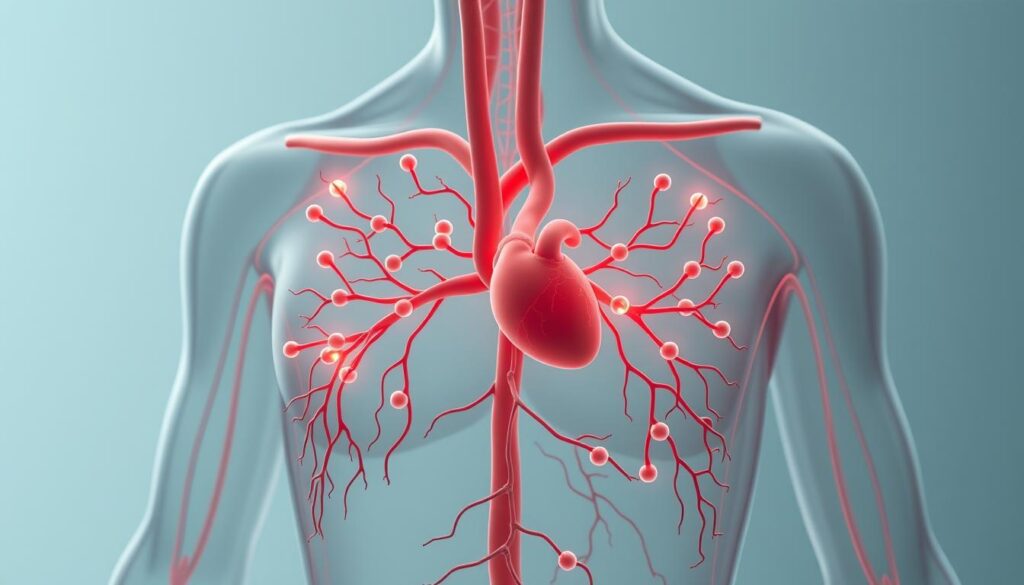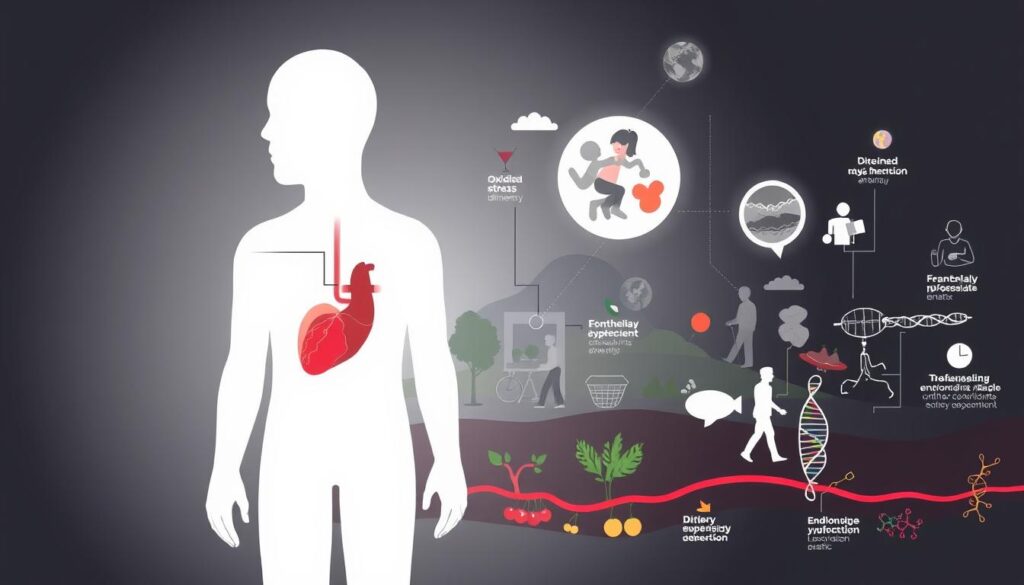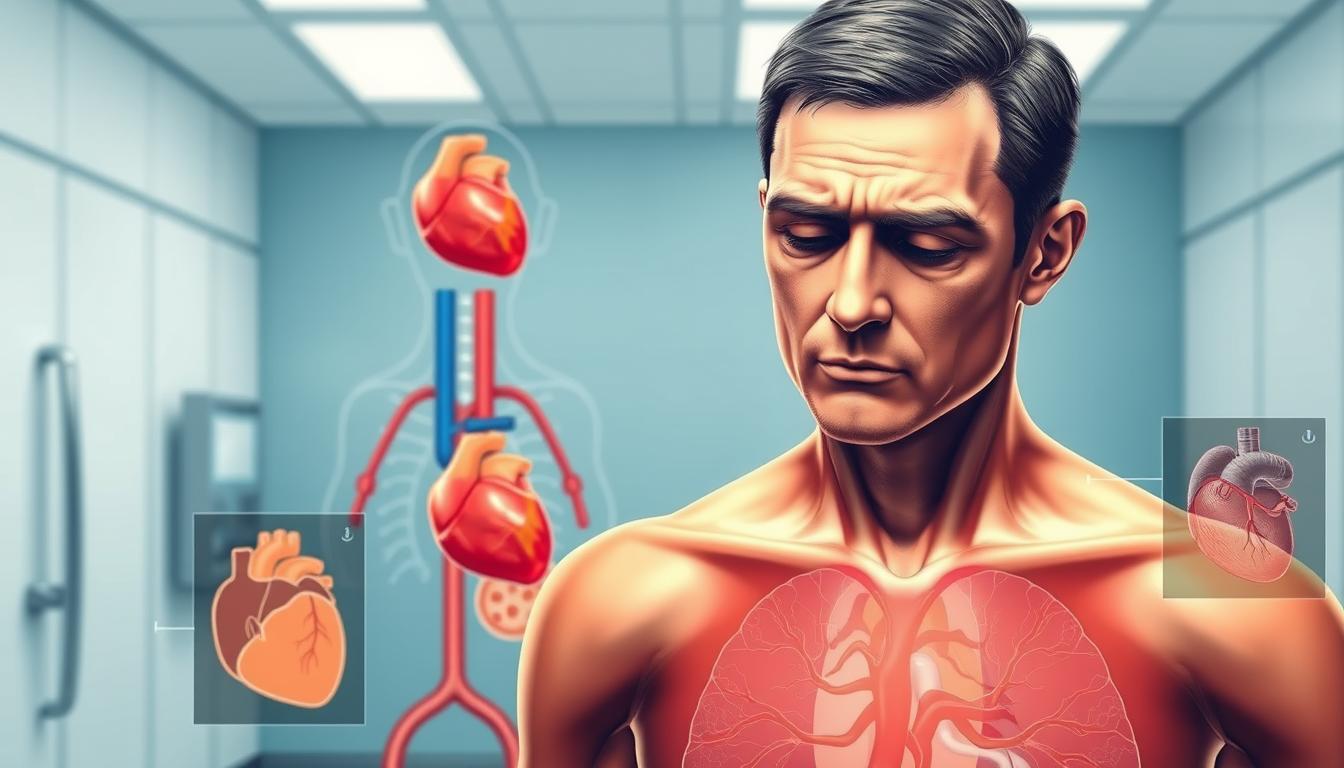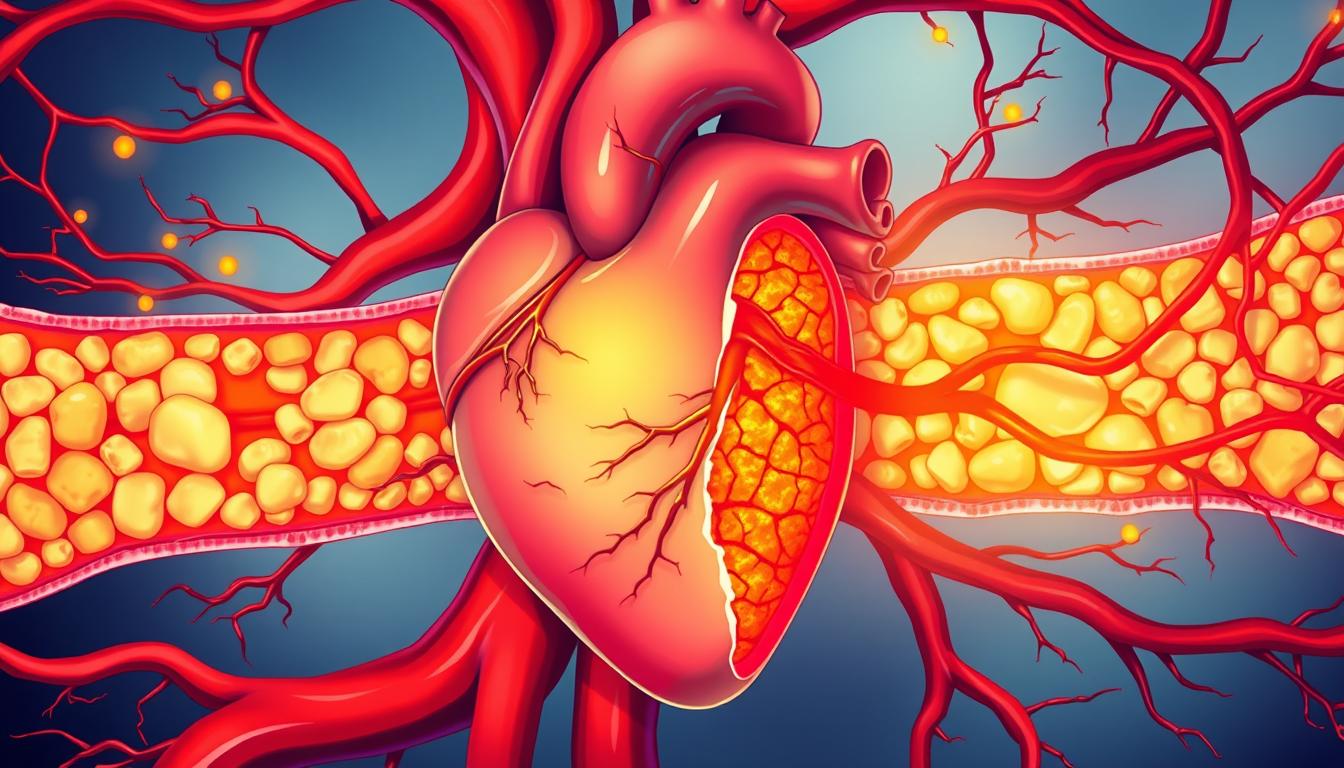Ever felt tired and unfocused all day? It might be because of low nitric oxide levels. Knowing the signs of low nitric oxide is key to feeling better. Many think tiredness is just that, but it can really affect your health.
Spotting these signs early is important. It helps keep your energy up and your body working right. Let’s look at the symptoms that show you might have low nitric oxide levels.
Key Takeaways
- Low nitric oxide symptoms may present as fatigue, poor circulation, or decreased cognitive function.
- Recognizing nitric oxide deficiency is vital for maintaining optimal health.
- Symptoms can significantly impact your daily life and overall well-being.
- Awareness enables proactive measures to enhance nitric oxide production.
- Low levels may be linked to various health conditions that shouldn’t be ignored.
Understanding Nitric Oxide and Its Importance
Nitric oxide is a key molecule in our bodies. It plays many roles that affect our health. Knowing what nitric oxide is and how it works is important.
What is Nitric Oxide?
Nitric oxide (NO) is a colorless gas made in our bodies. It comes from the amino acid L-arginine. Nitric oxide helps cells talk to each other.
This ability helps control many body functions. Knowing about nitric oxide can help us stay healthy.
The Role of Nitric Oxide in Your Body
Nitric oxide has many important jobs:
- Vascular Health: It helps blood vessels relax, improving blood flow and lowering blood pressure.
- Immune Response: It fights infections by stopping harmful germs.
- Neurotransmission: In the brain, it helps nerve cells communicate.
Having enough nitric oxide is key for these jobs. It shows how important nitric oxide is for our health.

What Are Low Nitric Oxide Levels?
Knowing about low nitric oxide levels is key to staying healthy. Nitric oxide is vital for many body functions. Finding out why you might have low nitric oxide helps you fix it.
Causes of Nitric Oxide Deficiency
There are many reasons for low nitric oxide. Some common ones are:
- Eating poorly, like not enough nitrates, which help make nitric oxide.
- Getting older, as our bodies make less nitric oxide as we age.
- Smoking and not moving enough can also lower nitric oxide levels.
- Conditions like diabetes and obesity can harm blood vessels and the lining of blood vessels.
How Low Nitric Oxide Affects Your Health
Low nitric oxide can cause serious health issues. It’s important to know how it affects you:
- It can increase the risk of heart problems, as nitric oxide helps blood vessels open up.
- It might make muscles weaker, because of less blood and oxygen getting to them.
- It can make inflammation worse, as nitric oxide helps control the immune system.
- It can also make you feel tired and less sharp mentally, because of less blood to the brain.

Low Nitric Oxide Symptoms: Do You Have Them?
Knowing about low nitric oxide symptoms helps you understand your health better. Low nitric oxide can show up in different ways. It’s key to spot these signs early to act fast.
These symptoms can affect people differently. They can change how you feel and what you do every day.
Common Symptoms to Watch For
- Fatigue: Feeling very tired without a reason.
- Poor Circulation: Cold hands and feet, or numbness.
- Headaches: Getting headaches often, or ones that are new.
- Shortness of Breath: Trouble breathing when you’re active.
- Reduced Exercise Tolerance: Getting tired quickly when you exercise.
The Impact of Low Nitric Oxide on Your Daily Life
Low nitric oxide affects your daily life a lot. It can make it hard to do physical activities. This can make you feel stuck in work or personal life.
It also makes it harder to think clearly. Simple tasks can become tough. This shows why it’s important to watch your health and find ways to increase nitric oxide.
Recognizing the Signs of Low Nitric Oxide
It’s important to know the signs of low nitric oxide for your health. Spotting nitric oxide deficiency early helps you get help fast. Many people show signs of low nitric oxide that can really affect their day.
Physical Symptoms of Nitric Oxide Deficiency
There are physical signs that show if you have low nitric oxide. Knowing these signs helps you make better choices for your health. Here are some common signs of low nitric oxide:
- Muscle cramps: Cramps happen when muscles don’t get enough blood and oxygen.
- Shortness of breath: It’s hard to breathe, even when you’re not trying hard.
- Decreased stamina: You might feel really tired and can’t do things as well as before.
- Fatigue: Feeling tired all the time could mean your body isn’t making enough nitric oxide.
- Headaches: Getting headaches a lot might mean your blood flow and nitric oxide levels are off.
Seeing these signs early can really help you stay healthy. If you notice them, talk to a doctor. They can check you out and give you advice.
| Symptom | Description |
|---|---|
| Muscle cramps | Cramps from not enough oxygen and nutrients |
| Shortness of breath | Hard to breathe, even when you’re not trying |
| Decreased stamina | Feeling really tired and can’t do things well |
| Fatigue | Always feeling tired, means not enough nitric oxide |
| Headaches | Getting headaches a lot, means blood flow is off |
How to Boost Your Nitric Oxide Levels
Boosting nitric oxide levels can improve your circulation and exercise performance. You can do this by changing your diet, taking supplements, and exercising. Knowing how to boost nitric oxide is key.
Dietary Sources of Nitric Oxide
Your diet is very important for nitric oxide levels. Some foods are full of nitrates, which turn into nitric oxide in your body. Eating these foods can help your blood flow better and keep you healthy. Some good foods are:
- Beets
- Leafy greens like spinach and kale
- Radishes
- Citrus fruits
- Nuts and seeds
Eating these foods is a tasty way to make more nitric oxide.
Benefits of Nitric Oxide Supplements
Supplements can also help a lot. They can make your blood flow better, help you recover faster after working out, and make you last longer. Supplements often have L-arginine and L-citrulline, which help make nitric oxide. Always pick good supplements and talk to a doctor first.
Exercise and Nitric Oxide Production
Exercising regularly is another great way to increase nitric oxide. When you work out, your body makes more nitric oxide to help your muscles get blood. Doing aerobic exercises like running or cycling, and also lifting weights, is best. Experts say you should exercise at least 150 minutes a week to boost nitric oxide and keep your heart healthy.
Consulting a Healthcare Professional
It’s important to talk to a doctor if you think you have low nitric oxide. Knowing when to see a doctor is key. This can help you feel better and live a healthier life.
See a doctor if you have big problems like trouble breathing or heart issues. Or if you’re feeling really tired or weak all the time.
When to Seek Help
It’s crucial to see a doctor when you need to. Here are some times when you should:
- If you feel very tired or weak.
- When you get headaches or migraines a lot.
- If you can’t do as much exercise as you used to.
- When you have trouble focusing or paying attention.
- If your blood pressure is always off.
Going to the doctor is a big step. They can help you feel better and find the right treatment.
Diagnostic Tests for Nitric Oxide Levels
Getting the right test is important to find out about nitric oxide levels. You might need to take a few tests. These tests can check how much nitric oxide you have.
| Test Type | Method | What to Expect |
|---|---|---|
| Exhaled Nitric Oxide Test | Measurement of nitric oxide in exhaled breath | A simple breath test; minimal discomfort |
| Blood Tests | Analysis of blood samples for nitric oxide metabolites | Standard blood draw; results available within a few days |
| Urine Tests | Measurement of nitric oxide levels in urine | Quick test, providing useful information on nitric oxide production |
Working with your doctor is important. They can help you understand the tests and what they mean.
Conclusion
Let’s wrap up our talk about low nitric oxide symptoms. Knowing about nitric oxide deficiency is key for your health. Spotting signs early helps you fix problems fast.
Your body needs nitric oxide for many things, like better blood flow and exercise. If you see symptoms of low nitric oxide, check your lifestyle. Acting quickly can make a big difference in your health.
Take care of your health by staying informed. Knowing about nitric oxide helps you make smart choices. Even small changes can make a big impact on your health.













